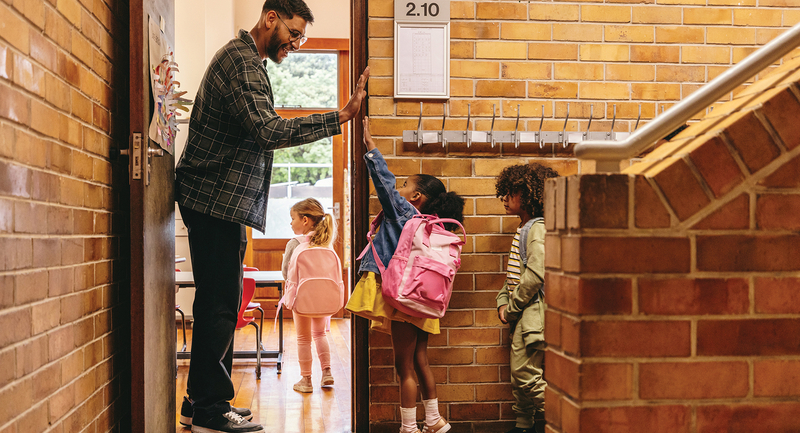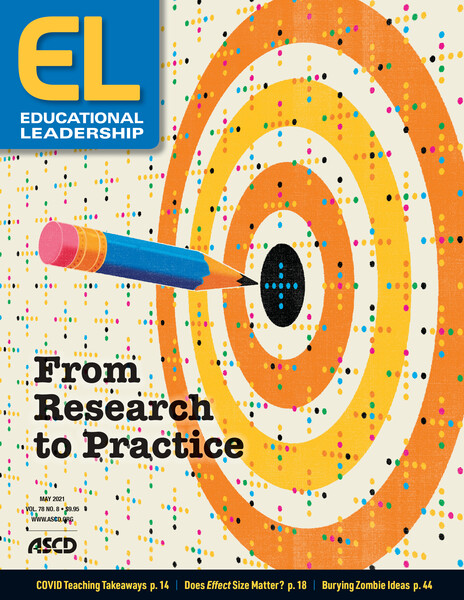Shaun R. Harper, the Clifford and Betty Allen Professor at the University of Southern California Rossier School of Education, is the current president of the American Educational Research Association. He also is executive director of the USC Race and Equity Center. For more than two decades, he has studied racial and gender equity in K–12 schools, colleges, and universities, including pioneering studies on academically successful Black and Latino male students. He has published many books, including, with J. Luke Wood, Advancing Black Male Student Success from Preschool through PhD (Stylus, 2015).
You've said, "Perhaps more troubling than the problems Black students face [in schools and colleges] is the way these problems are mishandled, [including] the deficit orientation reinforced in media, academic research journals, and practice." How might a deficit view cause problems in doing research?
You've said, "Perhaps more troubling than the problems Black students face [in schools and colleges] is the way these problems are mishandled, [including] the deficit orientation reinforced in media, academic research journals, and practice." How might a deficit view cause problems in doing research?
Deficit lenses almost always lead researchers only to problems, not to possibilities. If we presume there is no success to be found in particular neighborhoods or schools, we are less likely to go to those places to seek out success. Consequently, we deny ourselves and the users of our research a deep understanding of the policies, practices, and conditions that produce success in the seemingly unlikeliest of places. This happens too often in studies of students of color and schools that disproportionately educate those students. Much about the one-sidedness with which researchers study these students and their schools is racist.
You've done quite a lot of qualitative research focused on successful Black and Latino male high school students in urban schools. What were three key things you learned through this research?
First, that these students exist. Second, that they can teach us much about what works and can be scaled and replicated to improve achievement rates among their same-race male peers and other minoritized students. And third, Black and Latino male secondary students are willing to offer insights into their success; but unfortunately, they are rarely invited to do so.
Did your results reveal anything about what secondary teachers might do to promote Black student success?
My research continues to show that teachers who meaningfully integrate Black history, culture, and interests into their teaching practices are better architects and sustainers of Black student success. So too are those who come to understand and ultimately address their implicit biases about Black students, families, and communities. Furthermore, through the high-quality professional learning experiences we offer here at the USC Race and Equity Center, I am learning that teachers and school leaders who commit themselves to learning things about race that they have never learned anywhere else in their educational or professional upbringings are far better equipped to effectively educate Black students in equitable ways.
You've advised both top companies and many K–12 educational institutions on how to forge a more positive racial climate. What are some key things you advise schools to look at or do?
I advise educators to talk about race and learn how to facilitate productive opportunities for their students to do so. I advise leaders to formally assess the racial climate of their schools—either qualitatively via focus groups or through quantitative surveys. I also insist that they do something with the findings their climate assessments reveal—specifically, use the data to make long-term, sustainable change.
Finally, I urge K–12 educators to learn from racial crises that have occurred elsewhere. Professional development experiences should include deep engagement with case studies of other schools that have recently had racial problems. Why did this likely occur? Could it happen here? What can we learn from this situation, how could it have been better handled, and what can we do now to ensure that nothing like this ever happens here? These are just some questions with which teachers, staff, and school leaders should grapple in these conversations.
What's one thing K–12 educators should keep in mind when it comes to education research—and vice versa?
My advice to both entities is the same: Listen to each other and inform each other's work.
OK, Let's switch it up a little: If you could have dinner with any historical figure, who would it be?
Harriet Tubman. I would treat our dinner as a therapy session in which I would describe how I sometimes get worn down by the racism I fight every day in my work. Surely, Harriet would have wise counsel and encouraging words for me, given her perseverance and bravery. I would be sure to thank her for the advice, and more important, for all she did to help lead Black people to freedom. I would make sure Harriet knows how much she inspires me to lead Black people to freedom.
Editors' note: This interview has been edited for space.






